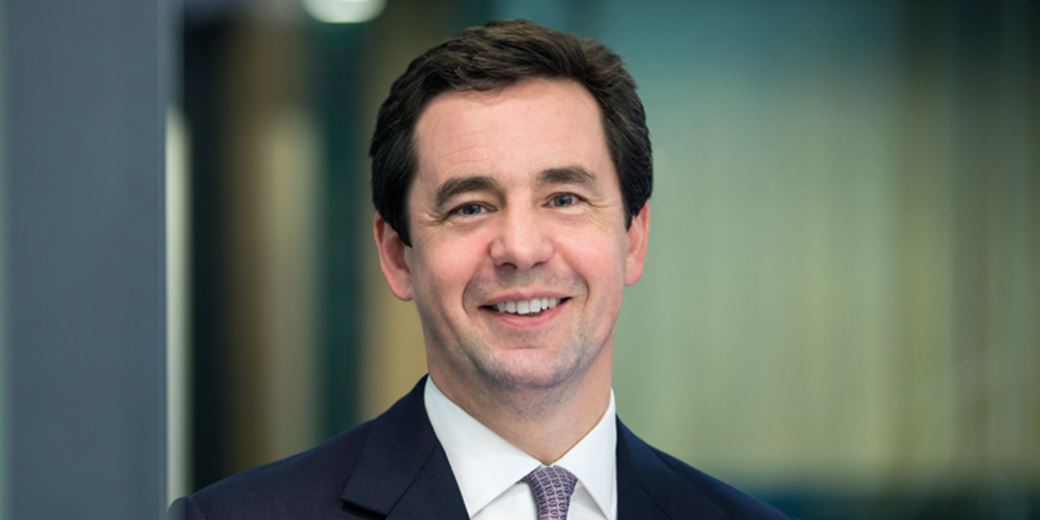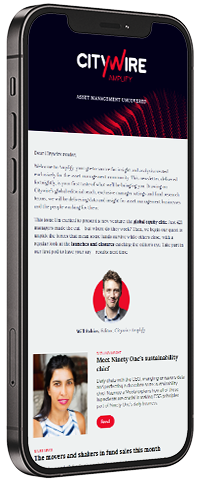There might be light at the end of the tunnel, but it ain’t here yet.
Thematics are the new normal, says Schroders boss Harrison

Latest Newsletter
Value stance rewards managers with first AAA rating
The year comes to a close with a host of managers gaining their AAA wings.
Real Life: A cheaper, smarter way to fly business to the US
Companies are clamping down on travel costs. Here’s how to travel in comfort while keeping the expenses department happy.
Community
Schroders CEO Peter Harrison is always worth listening to. A CEO who has worked at the coalface of investment management (selling stuff), he successfully built up RWC, now Redwheel, before joining Schroders and rising to CEO. Late last month, Schroders announced its half-year results to 30 June 2022. Below we extract highlights from Harrison’s remarks to stock market analysts about the results, along with Amplify’s interpretation. All quotes are taken from the Schroders transcript.
Harrison: ‘By region, the UK was the standout performance both in mutual funds, in solutions, and institutional.’
Amplify: Not a surprise, this is the group’s heartland and is supported by a giant wealth management franchise.
Harrison: ‘But if you just took the growth picture overall, you are seeing a very significant move out of effectively the traditional old, non-sustainable world, into either the thematic funds or new sustainable funds.’
Amplify: ‘Traditional old’ means Article 6 funds, which are becoming stranded assets, as many CEOs pointed out at our recent CEO Summit. As always, the real question for active managers is who has the best talent at managing thematic and sustainable money.
Harrison: ‘Our solutions business and our private assets business are now larger than our institutional business.’
Amplify: ‘The solutions business earns low basis points but is successful, bolstered by the acquisition of the UK solutions business of River and Mercantile in February this year. Private assets are stickier and higher-margin than conventional funds and less susceptible to being picked off by passive. Increasing the proportion of assets held in private assets, equity and infrastructure was a key strategic aim (as was bolstering diversity, which Schroders has done).
Harrison [talking particularly about the wealth sector]: ‘Thematics is a really important part of that and the ability to keep innovating in that area will be a feature of the future, so I don’t think we are going to go back to the old-country view to a great extent. Clearly, allocations to Gems [global emerging markets] will stay, allocations to global will stay, but really the rest of it will be much more thematic going forward.’
Amplify: Innovation is indeed important. The right kind will create products that endure, rather than fly high and burn.
Harrison [on taking a stake in a digital asset business]: ‘The thinking is this, that mutual fund technology is probably now 100 years old, certainly 80/90 years old. We are due something a bit more modern, and that I am sure will be a tokenised form, so effectively in your e-wallet, you have a range of assets which can be personalised to you, and they can be tokenised funds or they can be tokenised private markets exposure.
‘Probably in the future, it will be much more a blend of both public and private and certainly our view is that in order to be competitive you are going to have to have both, so you are going to have a slice of a wind farm, a slice of another piece of infrastructure, a slice of real estate and maybe even a slice of specific property alongside your thematic baskets or whatever. How quickly it happens is anyone’s guess at the moment, but if you look at the States as a lead indicator, really mutual funds are only now bought by boomers, the next generation is direct indexing, it is separately managed accounts, it is ETFs, and I think that mindset has shifted.
‘I think if we are to get proper engagement from investors in terms of what it is they own, they are going to want to be able to relate to the asset a lot more. One of the issues we have today is savings behaviours are distorted by the fact that people feel a long way from the underlying asset, so more people own crypto than own shares in the UK.’
Amplify: We cannot help remembering when Schroders took a small stake in Nutmeg to learn about robo-advice. The main thing it learned at that time was probably how basic and not particularly attractive Nutmeg’s service was at the time and so it, sensibly in our view, did not participate in major fundraises for Nutmeg. Who could have predicted that JP Morgan would eventually pay a reputed £700m for it?
Tokenising and modernising mutual funds has been talked about for a long time. Mutual fund dealing is a clunky, expensive, backward system with far too many steps. Digitising it ought to save huge operational costs. It will also allow people to switch more frictionlessly between funds. They will be able to buy and sell in real time, and only buy the spicy bits of funds rather than a whole load of padding – which is only there to keep track of the benchmark. But there are vested interests here: administrators, custodians and even the asset managers themselves. Not to forget regulators who have approved a system which, apart from the occasional scandal, protects investors well. But if a large, respected group like Schroders or BlackRock (also dabbling) takes this up, it can push through change. Fidelity International, in the shape of CEO Anne Richards, is also an advocate for doing things differently.
Finally, we quote not Harrison but Richard Keers, Schroders’ chief financial officer (although Harrison said ‘good point’).
Keers: ‘You should expect a slightly increased appetite to lend against client portfolios given we can now earn a commercial return from that activity.’
Amplify: Higher interest rates make lending more worthwhile. It also means client money sitting in cash becomes much more profitable for wealth managers as they benefit from the differential between what they pay (if anything). And what they can earn from it.
Latest Newsletter
Amplify Issue 30: The fund groups topping the tree
We analyse which groups have had the biggest inflows and outflows in 2022, look at managers achieving their first AAA ratings, and hear from Rob Kyprianou on why regulation gets it back to front.
Amplify Issue 29: Red hot: 2022’s private market hiring spree
2022 has been a hot year for private markets, but are asset managers putting the brakes on their expansion efforts? Plus, we look at how the bear market has affected launches this year and look at how firms can better communicate their brand values.
Amplify Issue 28: Fill your ESG product gaps
We hear from fund buyers on what they’re looking for from an ESG fund, find out what Neuberger Berman is plotting in the alts world, and learn the winners of Citywire’s Gender Diversity Awards.
Community
